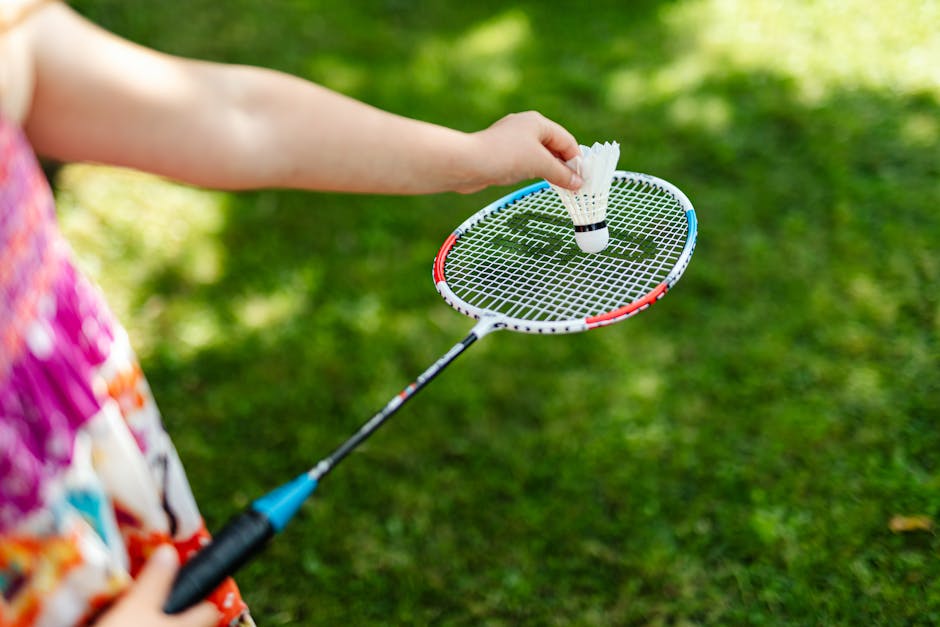In the fast-paced and exhilarating world of badminton, the racket you wield plays a pivotal role in your success. It's an extension of your arm, a tool that translates your skill and determination into a symphony of precise shots. Understanding the different types of badminton rackets and their intricate features will empower you to find the perfect companion for your style of play.
**Types of Badminton Rackets**
The badminton racket is primarily classified based on its balance point. There are three main types:
1. **Head-Heavy Rackets:** These rackets have a balance point towards the head, providing extra power in smashes and drives. They are ideal for offensive players seeking maximum court coverage.
2. **Head-Light Rackets:** These rackets have a balance point towards the handle, offering greater control and maneuverability. They are suitable for defensive players and doubles specialists who prioritize precise and agile shots.
3. **Even-Balanced Rackets:** These rackets strike a balance between power and control, with the balance point located near the middle. They are versatile and suitable for all-around players who need a mix of both attributes.
**Materials and Construction**
Badminton rackets are typically made from carbon fiber, graphite, or aluminum. Each material offers unique properties:
* **Carbon Fiber:** Provides exceptional stiffness and durability, resulting in powerful and precise shots.
* **Graphite:** A lightweight material that offers a good balance of power and control.
* **Aluminum:** The most affordable option, aluminum rackets are durable but less powerful than carbon fiber or graphite.
**Frame Shape and Weight**
The frame shape of a badminton racket can influence its performance. Common shapes include isometric, teardrop, and oval. The weight of the racket ranges from 70 to 100 grams, with lighter rackets offering faster handling and heavier rackets providing more power.
**String Tension and Grip Size**
String tension and grip size also impact the feel and performance of a badminton racket. Higher string tension provides more power and control, while lower tension offers greater feel and flexibility. The grip size should fit comfortably in your hand for optimal control.
**Choosing the Right Racket**
Selecting the right badminton racket is a personal decision based on your playing style, skill level, and preferences. Consider the following factors:
* **Power vs. Control:** Determine if you prioritize power or control in your game.
* **Balance Point:** Choose a racket with a balance point that complements your style of play.
* **Materials and Construction:** Select a racket made from materials that align with your desired performance and budget.
* **Frame Shape and Weight:** Experiment with different frame shapes and weights to find the ones that feel most comfortable.
* **String Tension and Grip Size:** Determine the optimal string tension and grip size for your hand and playing style.
Remember, the perfect badminton racket is the one that seamlessly extends your abilities and becomes an indispensable ally on the court. Embrace the exploration, find the racket that resonates with your game, and unleash your full potential in the pursuit of badminton excellence.
